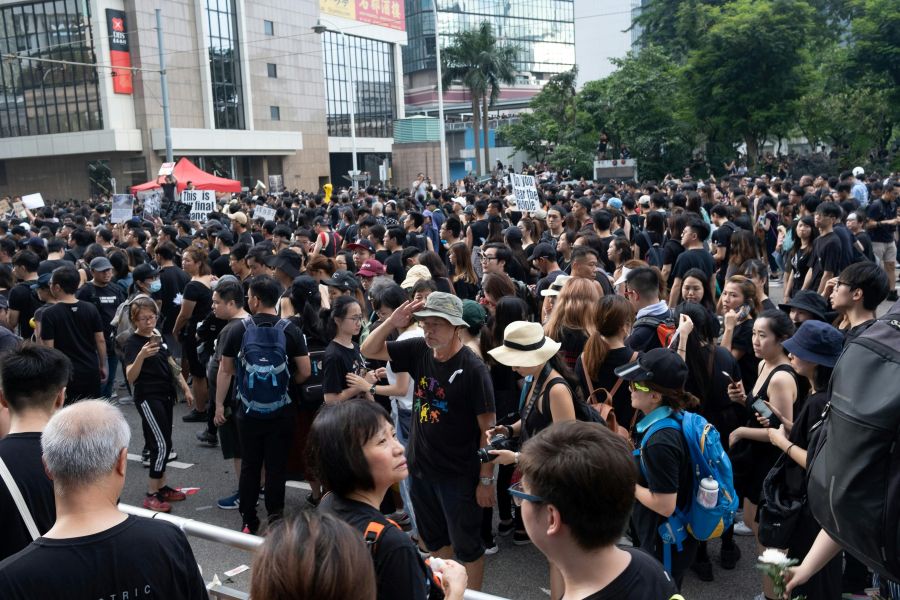In recent years, Hong Kong’s localist movements have seen a shift toward the formation of political parties, marking a new phase in the city’s struggle for identity, autonomy, and resistance to Beijing’s increasing influence. One of the key figures in this transformation is Chu Hoi-dick, a prominent localist activist, former legislator, and founder of the pro-independence political group. In an exclusive interview, Chu sheds light on the evolution of localist movements, their future direction, and the challenges they face in Hong Kong’s complex political landscape.
Kevin Lin: What do you think has driven the localist movements in Hong Kong to focus on party building?
Chu Hoi-dick: The localist movement has evolved significantly over the past decade. Originally, many of us were simply fighting against the erosion of our autonomy and identity. But as the political situation became more intense, particularly after the 2014 Umbrella Movement, we realized that we needed a more structured, long-term approach to influence real change. This is why party building has become a central focus. A political party offers a platform to reach the masses, organize protests, and most importantly, challenge the status quo. It’s a way to ensure that our movement doesn’t get sidelined or co-opted by larger, more established forces.
Kevin Lin: Can you talk about the strategic importance of a localist party? How does it differ from traditional pro-democracy groups?
Chu Hoi-dick: Traditional pro-democracy groups have often been hesitant to directly challenge Beijing. They’ve focused on pushing for reforms within the existing system, hoping that gradual changes could bring us more freedom. But this approach has been slow and ineffective. Localist groups, on the other hand, have been more radical in their demands. We advocate for self-determination and, in some cases, full independence. The key difference is that we recognize that Hong Kong’s future is at risk, and incrementalism won’t protect us from Beijing’s growing control.
Forming a party is crucial because it allows us to build a coherent political ideology and gain legitimacy. With a party, we can participate in elections, influence policy decisions, and engage more effectively with the international community.
Kevin Lin: How do you see the role of youth in the localist movement? Is it primarily driven by younger generations?
Chu Hoi-dick: Absolutely. The youth have been at the forefront of the localist movement from the very beginning. Younger generations have grown up in a Hong Kong that feels increasingly alienated from mainland China. They see their city’s freedoms being eroded, and they are more willing to take bold steps to protect their rights and identity. Many of these young people were inspired by the Umbrella Movement in 2014, but since then, they’ve become more radicalized. They understand that it’s not just about maintaining a certain way of life; it’s about survival. That’s why the localist movement has such a strong youth base.
However, it’s important to note that our movement is not just for young people. We have a growing number of supporters from all walks of life, including professionals, academics, and even some older generations. This broad base is what makes the movement so resilient and capable of building a lasting political presence.
Kevin Lin: With the increasing crackdowns on political movements in Hong Kong, how do you see the future of the localist party? Do you worry about suppression from the government?
Chu Hoi-dick: Of course, we’re always aware of the risk of repression. The Hong Kong government, backed by Beijing, has made it clear that it won’t tolerate movements that challenge its authority. But that doesn’t mean we’ll stop. The political climate in Hong Kong is becoming more hostile, but that’s exactly why it’s more important than ever to build a party and continue our fight. We have to push back against authoritarianism and make sure our voices are heard.
We’re not naive — we know that the government may try to disqualify us from running for office or label us as separatists. But we will continue to fight for our rights. Even if they try to crush us, the ideas and values of localism won’t go away. They will continue to inspire new generations of activists who are willing to resist.
Kevin Lin: What do you think the future holds for Hong Kong’s political movements?
Chu Hoi-dick: The future of Hong Kong’s political movements is uncertain, but one thing is clear: the fight is far from over. The localist movement is growing, and more people are waking up to the reality that Hong Kong’s survival depends on its ability to stand up to Beijing. The key to success will be building unity among localist groups and other pro-democracy forces, while also ensuring that we maintain our independence and our commitment to a more radical agenda. It won’t be easy, but I’m hopeful. The younger generation, in particular, has shown an incredible level of courage and determination. They are our future.
Kevin Lin: Lastly, what message would you like to send to the people of Hong Kong and those who support the localist movement?
Chu Hoi-dick: To the people of Hong Kong, I would say: never give up. No matter how difficult things get, we must continue to fight for our right to decide our own future. The road ahead is not easy, and we may face setbacks, but we cannot allow ourselves to be silenced or intimidated. To those who support us, I would say: your support means everything. We are stronger together, and we will continue to push for a Hong Kong that is free, just, and self-determined.

